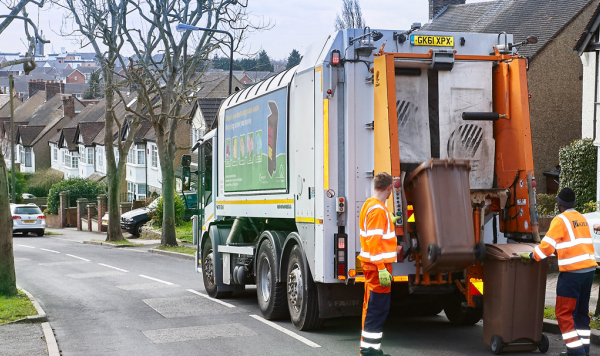Request
Have the councillors on the board since 2017 ever discussed the alternative plan for waste management in North London put to the management in 2017 by Stein! (Stop! The Edmonton Incinerator Now! campaign) XR (XR) and UKWIN (UK without incineration network) and subsequent AGM since then?
The alternative to incineration of waste for energy to meet new statutory clean air regulations, reporting standards and resources such as letsrecycle.com? This report that state 85% of the waste incinerated for energy at Edmonton is causing unnecessary harm to the residents of Edmonton, South Chingford and the Lea Valley since 1970's?
And that this 85% could be recycled easily cheaply and better using anaerobic digestion, scaled mechanical mixed waste sorting at the present site, or individual sites in the 7 boroughs?
Have the councillors on this board today, either previous or present, ever considered discussed and independently reviewed the clear clean safer alternative to The (new) Edmonton Incinerator now under construction? The new incinerator build could be paused and reviewed now, today for such a consideration, and discussion today, at this AGM.
Response
Dear Mr Stow,
Thank you for taking the time to address North London Waste Authority at the Annual General Meeting on 22 June 2023.
I want to emphasise the importance members place on understanding the wide range of developments related to responsible waste and resource management. We have been at the forefront of encouraging initiatives to reduce waste in our boroughs and supported the reduction in environmental impacts of waste.
Our recent Corporate Peer Review conducted by independent parties, recognised the progressive agenda the Authority is successfully pursing and how we are leading the charge for positive changes in the face of the waste crisis.
I addressed some of the points in the meeting which we have discussed on many occasions and wanted to provide a full response to share how we are considering these as we carry out the vital services NLWA provides for north London’s residents.
You raised concerns about the safety of a facility that burns plastic from fossil fuels
Our project is providing crucial investment to protect the environment and improve the quality of life for local people. The facility performs a vital function of ensuring materials that are at the end of their life are responsibly dealt with. The energy-from-waste model is not comparable to a power station which burns fossil fuels directly as the materials which are formed from fossil fuels have already served their primary purpose. We need to ensure that less plastic is generated in the first place and regularly call on the Government to ban single used plastics and keep resources in circulation for as long as possible.
We continuously monitor emissions emitted from the current facility and report these to the Environment Agency against our permit to operate. As a result of the advanced emission controls, the contribution of the new Energy Recovery Facility to pollutant concentrations at ground level will be effectively zero and the predicted concentrations are well below the limits of detection. By comparison, in Enfield, road transport emissions are responsible for 43.5% of NOx, while the industrial and commercial sector contributes 52.1%. Real action to improve air quality needs to focus on these sources and not our facility, which will carry out a vital public service for nearly one quarter of London’s population, while protecting public health and diverting thousands of tonnes of rubbish from landfill every year.
While the current facility is over 50 years old it does continue to operate within its permitted levels of emissions. The replacement facility has been designed with a 5-step cleaning process employing the most advanced technologies to reduce concentrations of pollutants to levels so low that they are undetectable in the air at ground level and are future proofed to comply to new air quality limits. For instance, the new Energy Recovery Facility will operate at almost 1000 times lower than the World Health Organisation’s limits for particulate concentration.
Scientific studies and academic reports from organisations like Public Health England have confirmed, “Modern, well run and regulated municipal waste incinerators are not a significant risk to public health.”
You recommended the use of a Mixed Waste Mechanical Sorting facility at the site in Edmonton.
As we have previously shared, the technology to sort waste is not a complete solution for all the residual waste in north London and we would still need to invest in a facility that can treat the hundreds of thousands of tonnes of residual waste that is sent to us every year.
The site is not large enough to support a mechanical mixed waste sorting plant and this process still results in waste that needs to be treated in an energy from waste facility. We explored options to include a Mechanical Biological Treatment plant on the site in Edmonton prior to the agreement to replacing the current energy from waste plant. This method has not been proven at the scale we need for all the residual waste in north London and is just a step before the burning process.
Plants that separate waste after being collected have been used in places with different waste compositions to north London. Typically, these plants are used where plastics are disposed of with household waste. We have an extensive household waste recycling offer in north London so there is less available content suitable for sorting and recycling in the waste. NLWA supports north London boroughs to maximise their recycling collections and reduce waste.
Extended Producer Responsibility and Deposit Return Schemes should further support less recyclable content within the general waste stream and our efforts have been focused on reducing residual waste to start with. We agree with maximising the amount of recycling and reduction in waste that can be achieved in north London, but efforts need to be focused on stopping the waste in the first place: like banning single use items and making recycling collections more effective, which we have been calling on the Government to do for many years.
You asked if members have considered the alternative plans that have been put forward in previous years.
The plans as outlined have not represented full solutions for the waste in north London. We have been presented with views on the management of waste in north London many times and hope our responses, both now and previously, have shared why certain aspects are not possible in the current waste management setting. Throughout the development we have sought opinions of waste management specialists to advise and guide our understanding on how we can offer the best environmental, social and financial option for our residents.
I want to reiterate that the North London Heat and Power Project works alongside our mission to reduce waste and we will always work to innovate to improve services for the benefit of people and the planet as well as seek to ensure we are listening to the needs of the communities we serve. We have included far greater capacity on the site to sort recycling out of north London’s waste in the Resource Recovery Facility and included public facilities for residents to recycle materials on the site as well.
I hope you will find the explanations above useful to understand how seriously we consider the points you have raised. We share your desire to see less waste arising in our boroughs and will continue to work closely with waste experts to ensure we are providing a service that genuinely protects and meet the needs of our communities.
Thank you for sharing the letter from UKWIN about the recommendations for a value for money review during the meeting last week. I have reviewed this previously and provided a full response in July 2020 to the recommendations.
Yours sincerely,
Cllr Clyde Loakes
Chair, North London Waste Authority


